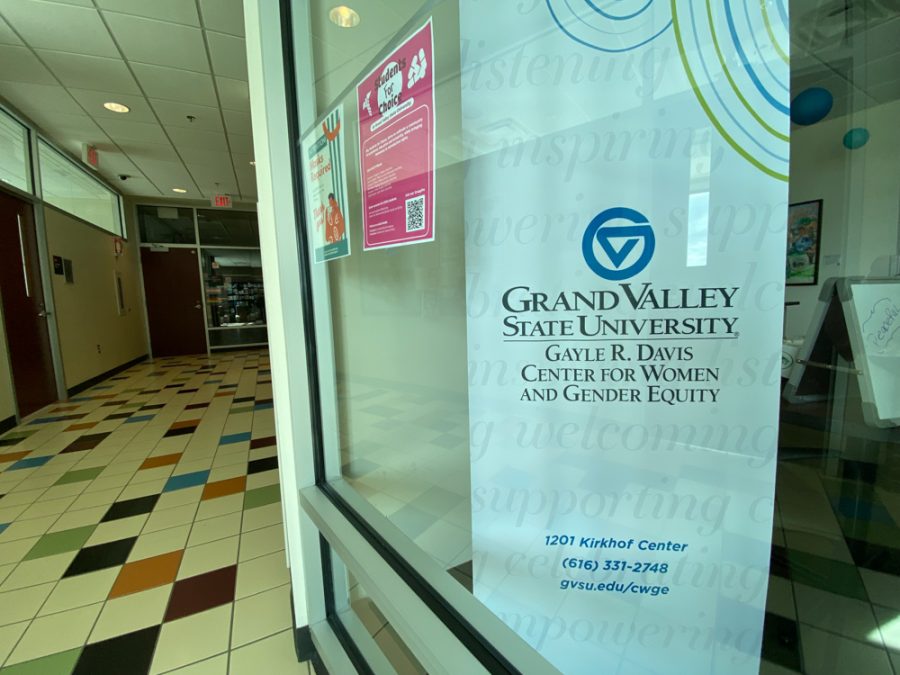Center for Women and Gender Equity teaches how to support sexual assault survivors
Mar 28, 2022
To begin Sexual Assault Awareness Week, the Center for Women and Gender Equity (CWGE) at Grand Valley State University hosted a “Supporting Survivors and Victims” workshop to teach students how to help others deal with their trauma.
The event began with a video presentation where women were told to read a story from a piece of paper. Statements like “I was eight-years-old when I was first assaulted by an older male cousin,” and “when I tried to tell my mom, she kicked me out of the house and blamed me,” were included in the video. By the end of the video, the women were told that they were reading stories from men.
From this video, viewers learned that at least one in six men in the U.S. have experienced sexual abuse or assault.
“There are a lot of different stereotypes on why this happens and who this happens to,” said Hayley Wilson, a student employee at the Center for Women and Gender Equity.
Leah Short, the violence prevention and education coordinator at the CWGE, provided a number of statistics that were eye-opening. She said that 93% of sexual assaults are committed by someone known personally by the survivor. This was followed by a number of race-related statistics.
“More than one in two indigenous women have experienced sexual assault in their lifetime,” Short said.
There are groups of people that are disproportionately impacted by sexual assault. Common risk factors include things like racism, sexism and ableism.
The next video played at the workshop was about the neurobiology of trauma. It was highlighted that most survivors are going to have one of these stress hormones: natural adrenaline, energy or natural morphine. There’s no telling how the human body will react to such a traumatic event; all it knows is that it is trying to block the experience out.
Next, Wilson showed that false reports are statistically very uncommon and only occur 2-3% of the time. More than likely, most people will encounter someone that goes through sexual assault at some point in their life, and that person needs to know that they have someone there to support them. If someone chooses to share that information, it is paramount to thank the survivor for disclosing and leave space for them to lead the conversation.
“Support is really important,” Short said. “Remember that you may be the first person they tell.”
The “Do-Nots” in this scenario are just as important as the things one should be doing. The list includes defining the survivor’s experience and making decisions for the survivor.
“It’s not necessary to point out that they are in an abusive relationship,” Wilson said. “Only the survivor knows what’s best for them.”
The workshop came to a close with examples of supportive language to say to the survivor. Examples included phrases like “I’m sorry this happened to you,” and “I’m here for you.”
Sexual abuse and assault affects all genders, races, ages and ethnicities. GVSU offers survivors myriad resources available on the CWGE page of the GVSU website.






















